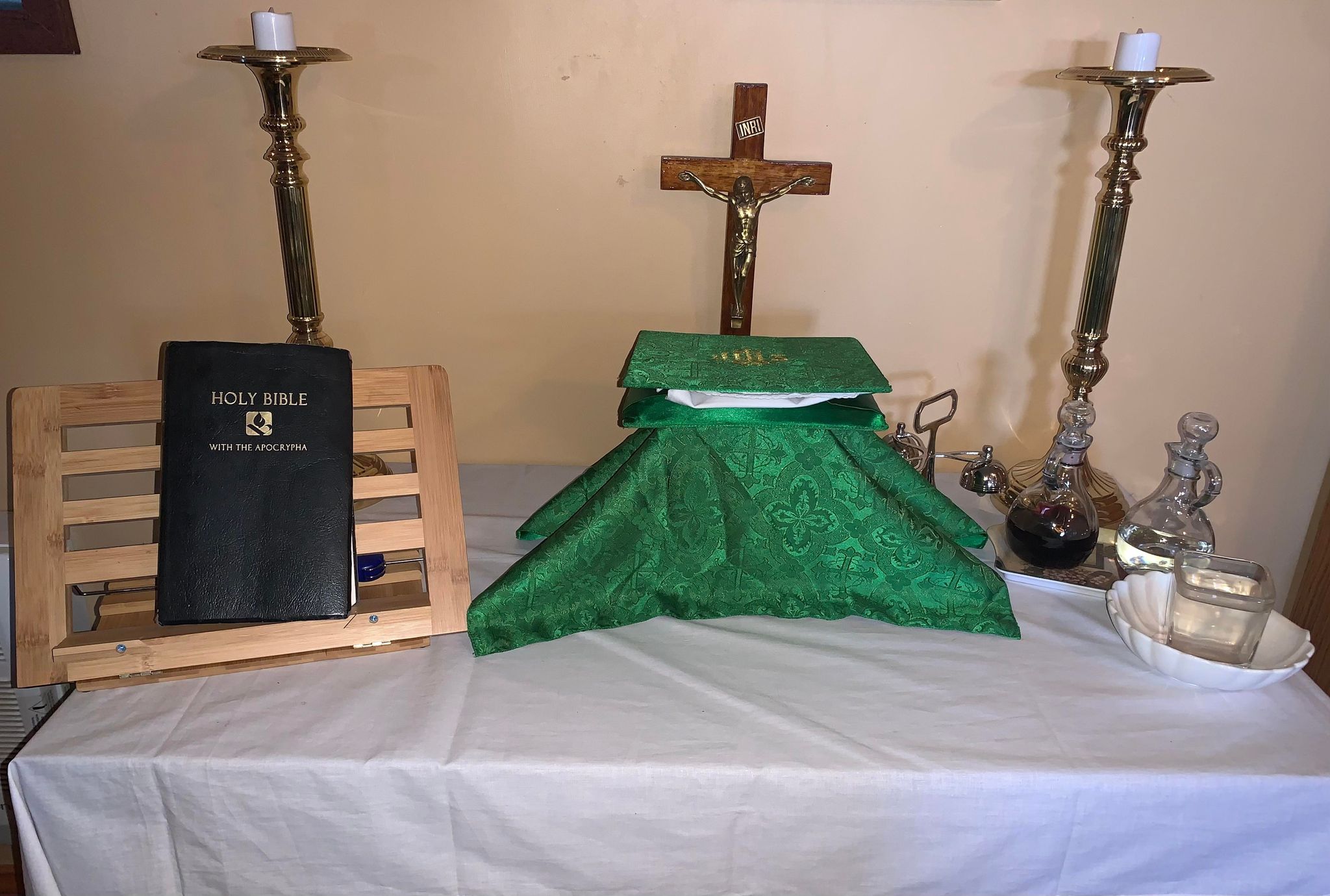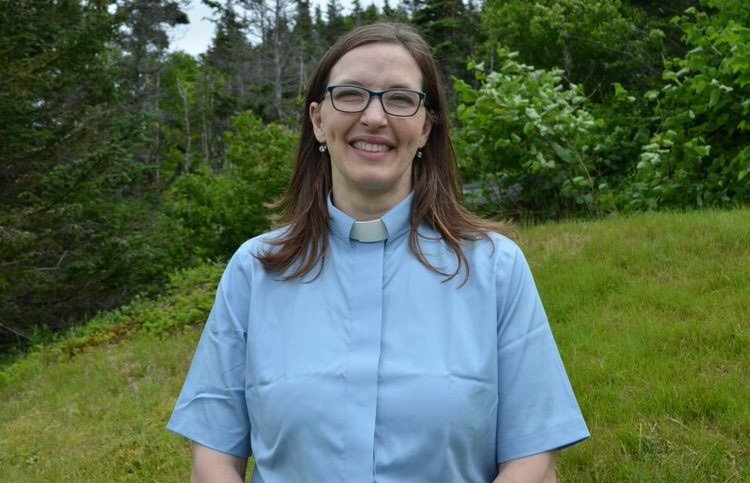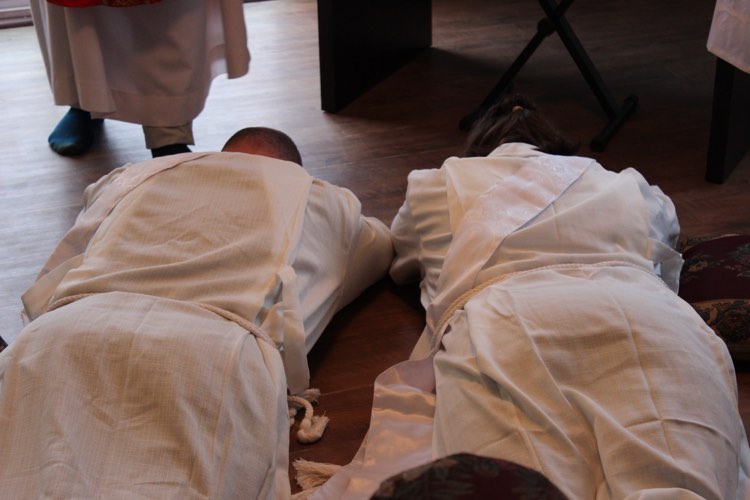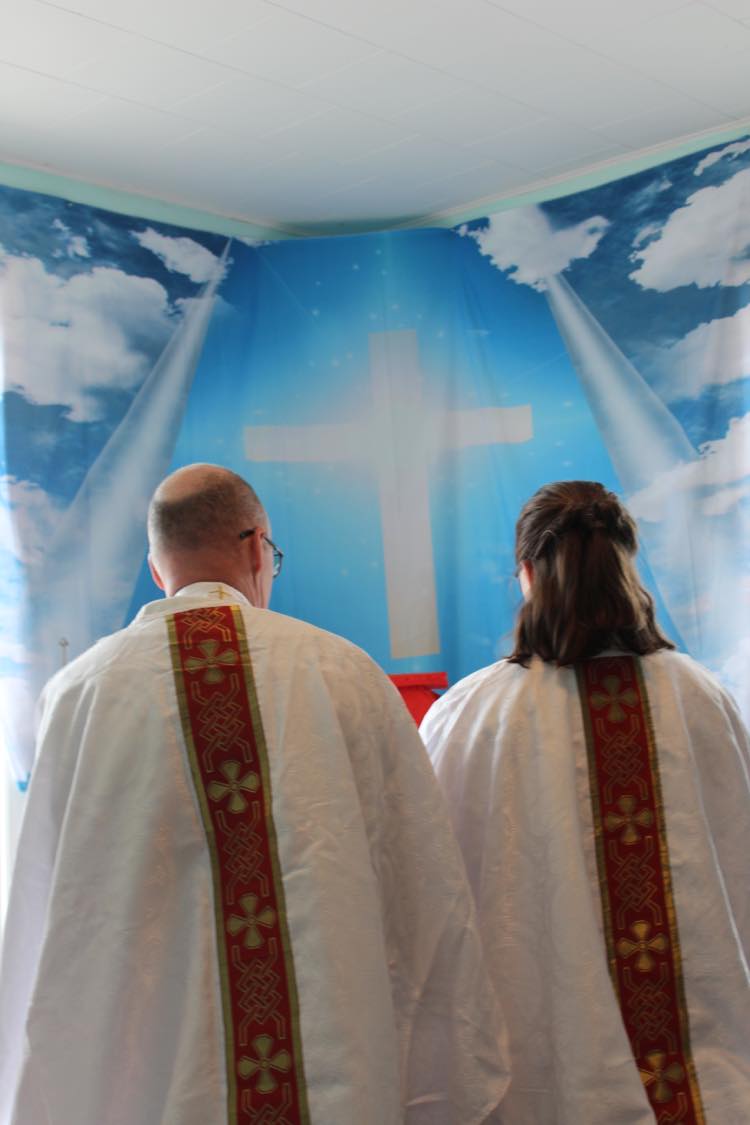- Home
- about stbrigits
- Human Resources Considerations
- Human Resources Details
Simply Catholic and Welcoming You
Human Resources Details

An Altar Prepped for Mass
Human resources details for churches and parishes can make or break an organization. I will attempt to cover all that I can in this web page. Please take note this is 'high C' personality type dry reading details, details, details.
By its very nature this material tends to be neither human nor search engine reader friendly. Sorry! The intention here is to provide a detailed resource that can be copied and implemented by others. Yes it is written in terms of church needs specifically.
I am constantly surprised by how many leaders know little of this information and how many fail to involve people who do. If you are not sure of what I write here, please find someone in your church or parish who specializes in human resources and have them verify my writing or produce their own for your use.
Churches and parishes, regardless of their size, once they begin to pay clerics (ours is an unpaid ministry) or lay persons become employers and must be responsible employers and ensure they comply with all relevant legislation such as the Provincial Employment Standard’s Act, the Human Rights Code, the Occupational Health and Safety Act, Accessibility for Persons with Disabilities Acts, Workplace Safety Insurance Act and the Income Tax Act. This applies to all individuals that the parish pays including, where applicable clerical appointments and honorariums.
Human Resources Details:
EMPLOYEE OR CONTRACT WORKER?

Provincial Certificates as Clergy Marriage Commissioners
Employees earn employment income, work as an integral part of the organization, and take ongoing direction from a supervisor. Directors must ensure all workers designated as employees are placed on the church payroll and all appropriate statutory deductions are made. An employee who has a fixed-term contract (i.e. one year in length) is considered an employee and should not be confused with an Independent Contractor as outlined below.
Independent Contract Workers provide a service, submit an invoice for the service they provide, have the ability to subcontract, have multiple clients, own their own tools or equipment and assume the risk of financial profit or loss. Independent contractors must assure the Directors that they have an HST number, and adequate insurance coverage.
Be careful not to confuse the two or the church may be subject to fines, penalties or other statutory obligations. For example, in usual circumstances, a parish secretary is an employee, a furnace repair person is a contractor, janitorial services may be either depending on the work arrangement.
Our clergy structure is such that each parish is an ‘independent entity’ while all clergy derive their clergy authority from our Council of Bishops/Diocesan Bishop. As such we are not accustomed to thinking in terms of employer/employee. Still the information in this document may apply under a variety of circumstances and some ‘by implication’.
Clergy who run a ‘marriage business’ and have hired help are employers by definition and need W.S.I.B. and employers numbers, in addition to insurance such as liability insurance.
Thus if you have a venue and pay cleaners or ‘set up staff’ either your venue is a separate business and employs them or your marriage/clergy business is the employer.
If you use a janitorial service, you are hiring independent contractors.
Human Resources Details:
Some of This Documents Details Apply
"By Implication"

A Little Home Altar
What do I mean by some of this document applies ‘by implication’?
Screening by Faith principles and concepts are not just for employees. There is an expectation that as a church entity we will thoroughly screen our clergy and employees. While not a legal requirement, if we do not screen our independent contractors and something illegal occurs the public perception is that we would of course have screened anyone we allowed access to vulnerable persons so a liability situation could occur.
It is best practice these days to screen ‘everyone we use’ in any capacity. Document all such screening and retain all such documentation in locked files. This sounds much more complicated than it really is.
On ‘first contact’ with prospective clergy, employees or contractors it is normal and expected that we interview each of them. This may be formal or informal but should include specific questions and, at the time or immediately afterwards record the questions and answers. If this is to be a long term contact and for any clergy or potential clergy, get a police check. A one time contact may simply mean that you remain with them until they are done.
(While we don’t differentiate on a gender basis the public and the courts do. Cross gender interactions should always have a witness present. If not in the room (for reasons of confidentiality for example) then close by with the door to the room you are using ajar.)
Clearly if your ministry has no involvement with employees , contractors who have contact with your congregation or you simply show up at someone else's venue as clergy to officiate at a wedding or funeral and then leave again; this document may not apply to you in any way.
That said, do think carefully before you dismiss this information, especially the obligations contained in this document. If in doubt, please make the appropriate inquiries.
Human Resources Details: Hiring

Amma Charlene is a Business Graduate Specializing in
Human Resources Management
EMPLOYMENT CONTRACT AND JOB DESCRIPTIONS
Every work arrangement should be in writing. The onus is on the employer to state expectations clearly. Employment Agreements should include a list of duties and responsibilities, a list of work conditions and a termination clause.
HIRING:
The most effective hiring begins with a thorough job description. The job ad, the resume screening, the interview questions and selection decision should all be based on this job description. It is recommended that the parish use an open selection process as it offers a wide selection of applicants. During the interviews, use the same questions and strive to create a similar atmosphere for each applicant so all compete equally.
Hiring a Parishioner
There are obvious advantages to hiring parishioners – they know about the congregation and understand the functions of the church. On the other hand, the priest must function as both supervisor and pastoral caregiver. To safeguard the interests of the parish as well as the individual, and with an eye to the Human Rights Code, strive to choose the most qualified and gifted person for the position. Should that person be a parishioner, then speak quite openly and frankly about how that person’s relationship with the clergy and church will change.
Staff Employed to Function in a Parish
The need for a parish staff person in the following areas should be discussed with the Area Bishop before the hiring process begins:
Christian Education
Counseling
Liturgical functioning
Youth, Children, or Family ministry
At St. Brigit's Community Catholic Church each of the above callings would fall on the clergy who, again are unpaid, independent clergy and thus not 'hired'. They are still required to pass police background and vulnerable sector checks and, if trained by us their documentation from that training also serves to show that these are people 'who know or ought reasonably to know' what is expected of them.
If the clergy joined us by incardination, the documentation of their training, interviews and being expected to read and show understanding of this website material all serve the same purpose which is to protect the public, protect our corporation and prove basic skills competency.
An offer of employment should be prepared which must include salary, benefits, terms and length of contract, the evaluation process, the lines of accountability, and a termination clause. Care should be taken to ensure that all professional parish staff have adequate liability insurance coverage. If the position will be filled by an ordained person, there are additional requirements for licensing by the Bishops. The Area Bishop must be consulted prior to any offer being made to a cleric and normally this offer is done through an appointment letter by the Area Bishop.
All clergy in St. Brigit's Community Catholic Church are, by definition independents and are neither employees nor contractors. Each will operate as their own entity with St. Brigit's Community Catholic Church serving as a 'parent body' for purposes of spiritual oversight and to ensure the catholic charism, ethics and principles are met and followed.
CONFLICT OF INTEREST
It is usually inappropriate to have an employee serve on the advisory board, as a supervisor or as an officer of the parish. This would constitute a conflict of interest in that the employee would serve in a dual role and may not be able to make decisions which have the church’s best interests in mind. It is also inappropriate for an employee to supervise a family member.
The Directors cannot be the spouse of the Incumbent or any assistant, associate or honorary Cleric of the parish or the spouse of any lay employee of the church, the other Director, any Deputy Director, Treasurer, Envelope Secretary, or any member of the Board of Trustees of the Cemetery. Likewise it would be inappropriate for an employee of the parish to serve as a Director.
COMPENSATION
Not-for-profit organizations tend to pay a little less than commercial organizations. Nevertheless, the church must always act equitably and justly. Therefore, do a market survey and ensure the parish is paying its staff adequately. As just and fair employers, the Directors should apply the annual cost of living adjustment to lay staff compensation levels, otherwise they do not keep pace with inflation.
PERFORMANCE EVALUATION
The evaluation of parish employees’ performance is the responsibility of the Incumbent. The Directors may wish to participate in this process if appropriate. The principles of a good performance evaluation meeting are that:
There are no surprises; previous difficulties are reviewed because they should have been resolved when they occur
Goals are reviewed and new goals set
Feedback is clear, specific and non-judgmental.
DISABILITY AND SICK LEAVE
Unless the parish has its own sick leave policy, it is under no statutory obligation to pay an employee who is on sick leave. In these cases, employees who are ill must apply for Employment Insurance. If the parish continues paying an employee while he/she is ill, it must consistently do so for all other employees. Make sure a doctor’s certificate is filled out before the parish grants the leave and again when the employee is ready to return to work. Only hire temporary replacement staff while the employee is on sick leave since the Human Rights Code assures them of their job upon recovery. Consult with the Diocesan Director of Human Resources (in our case Amma Charlene) or someone with similar expertise in your parish if you have questions.
RESIGNATIONS OF EMPLOYEES
From time to time work arrangements come to an end. It is a general practice that an employee gives an employer two weeks written notice that they intend on leaving the job. Once the parish accepts the resignation, this acceptance needs to be put in writing and include the last day of work and last day of pay. These dates can differ if there is any accrued and unused vacation.
DISMISSAL OF EMPLOYEES
When an employee’s performance is unsatisfactory, the Incumbent and Directors must do all they can to ensure that there is a fair process of performance management before dismissal is considered. A badly managed employee dismissal can severely harm the life of the parish. Please consult with someone with human resources expertise, or an employment lawyer before you proceed with an employee dismissal.
Recent Articles
-
Ordination, incardination and dismissal of clergy
Mar 03, 25 06:47 PM
Overview of Ordination to Holy Orders, incardination and dismissal of clergy -
Catholic Last Rites
Mar 03, 25 06:41 PM
An explanation of the Catholic Last Rites and Anointing of the Sick -
Catholic-Confession
Mar 03, 25 06:37 PM
Full breakdown of the Catholic Confession Sacrament of Reconciliation


